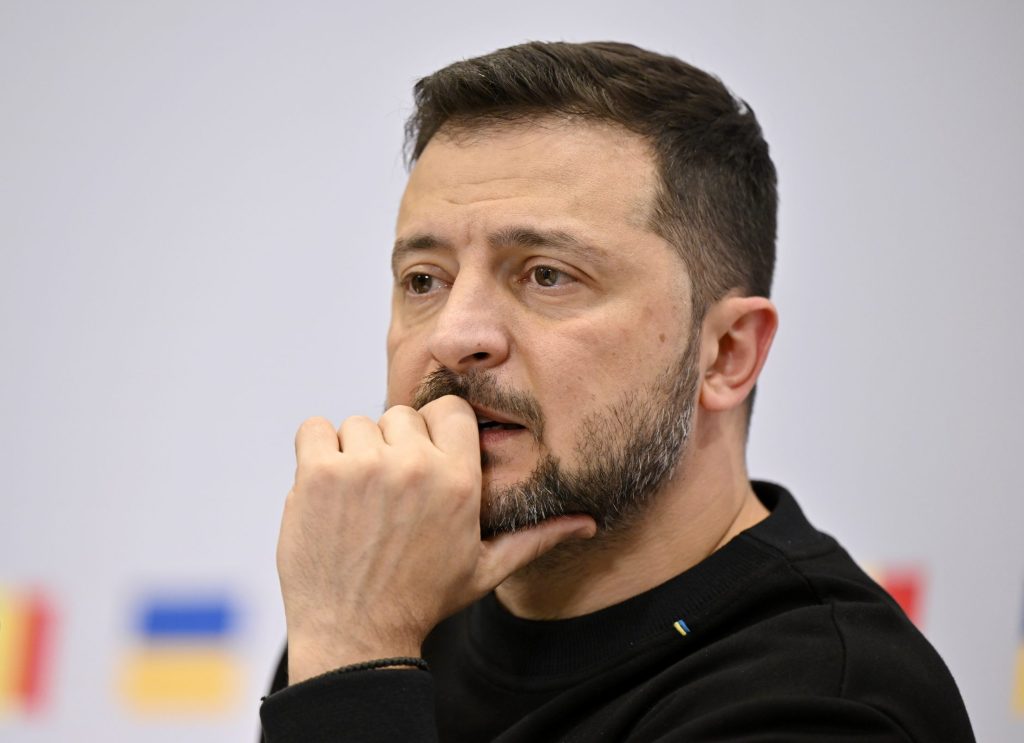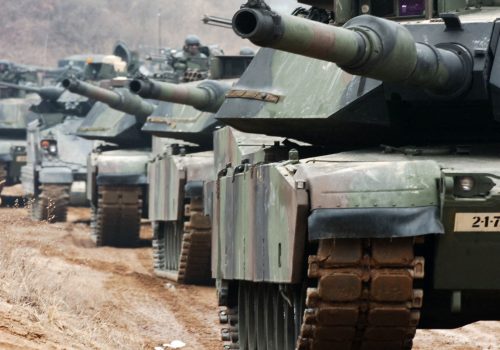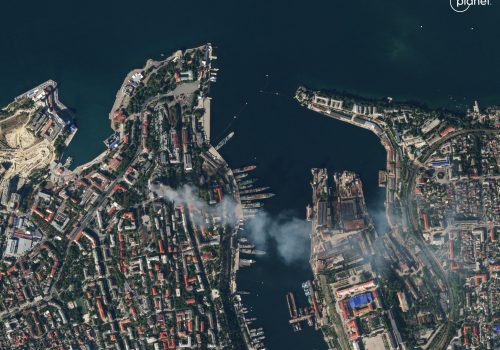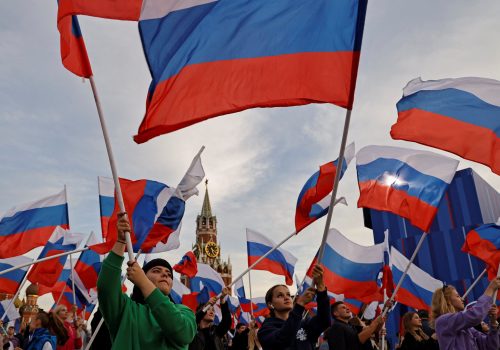If Winston Churchill were still with us, he would surely be advising Ukrainian President Volodymyr Zelenskyy to ignore international pressure to call elections. Much like Ukrainians in 2023, the British in 1940 were fighting a war of national survival. Every October for five consecutive years, the wartime British government led by Winston Churchill obtained legislative consent to postpone scheduled elections and extend the life of the sitting British parliament.
Churchill’s reasons for doing so were obvious and in many ways apply equally to today’s Ukraine. In 1940, Britain sought to avoid the distraction and potentially divisive impact of elections in order to maintain national resilience and focus all its energy on the war. The Churchill government also recognized the impracticality of holding an election with millions of displaced people across and beyond the nation, and saw that it would be virtually impossible to ensure a fair test of public opinion with Britain under daily attack and engaged in a global war.
In line with Ukraine’s peacetime election cycles, the country was due to hold a parliamentary election in late 2023 and a presidential vote in spring 2024. However, the introduction of martial law following Russia’s February 2022 invasion means elections cannot currently take place. Nevertheless, in recent months some international officials and commentators have begun calling for Ukraine to stage elections in 2024, arguing that this would underline Ukraine’s democratic credentials.
According to the same logic, critics say failure to hold elections would discredit efforts to portray Ukraine as an emerging democracy defending itself against autocratic Russia, thereby weakening one of the central narratives underpinning Western support for Ukraine. Needless to say, Moscow can be expected to exploit any Ukrainian hesitancy in order to fuel skepticism toward Ukraine throughout the democratic world.
Stay updated
As the world watches the Russian invasion of Ukraine unfold, UkraineAlert delivers the best Atlantic Council expert insight and analysis on Ukraine twice a week directly to your inbox.
So far, President Zelenskyy has responded cautiously to calls for wartime elections. He is clearly reluctant to dismiss the idea outright for fear of being labelled undemocratic, but has stressed that Ukraine would need considerable international support in order to organize elections in what are extremely challenging circumstances.
The logistical obstacles to holding elections in wartime Ukraine are formidable. Approximately 20% of Ukrainian territory is currently under Russian occupation. Many millions of Ukrainians are living outside the country as refugees, with millions more displaced internally. It would take considerable time and resources, to say the least, to create a credible electoral register.
The safety issues raised by a nationwide election campaign amid Russia’s ongoing invasion are similarly immense. How could soldiers fighting on the front line effectively participate in the campaign? Can politicians hold public meetings or campaign rallies without fear of being targeted by Russian air strikes? Aside from Kyiv, most Ukrainian cities have only limited air defenses. The prospect of holding any sort of public meeting in such conditions is fraught with danger.
The many safety concerns related to campaign meetings would apply equally to polling stations on election day. A single Russian attack on a polling station during voting hours could easily result in dozens of deaths. Russia’s track record for bombing civilian targets and public gatherings during the current war means there can be little doubt the Kremlin would seek to attack election-related events.
It is also reasonable to question the wisdom of exposing the country to a period of intense internal political competition amid a war of national survival. How could national unity be sustained through a three-month election campaign?
Clearly, technical innovations could be found to address some of these concerns. Perhaps Ukraine could deploy digital solutions for both campaigning and voting. Ultimately, however, the arguments against holding elections are compelling if not overwhelming. Any attempt to organize Ukrainian elections in today’s wartime conditions would be profoundly impractical and unsafe. Millions of refugees, displaced people, service personnel, and those living in Russian-occupied regions of Ukraine would all potentially be unable to vote. It would amount to a dangerous as well as dubious exercise in democracy.
Eurasia Center events

While some in the West seem to think holding elections in wartime Ukraine is a good idea, the British government of 1940 would certainly not have agreed. One of the most striking aspects of the debate within the British parliament during World War II over the postponement of scheduled elections was the fact that there was almost no debate at all.
This lack of debate is underlined by the fact that Hansard (the British record of parliamentary debates) appears to record only one instance of Prime Minister Winston Churchill being asked about postponed elections in the course of the entire war. The pressing and obvious need to extend the life of the existing parliament until the defeat of Nazi Germany was clear to everyone.
Ukrainians can draw a number of lessons from past British practice during their own war of national survival. Notably, British politicians during World War II recognized that organizing elections amid a major war is likely to imperil the objective of victory. This was so self-evident to the British of the early 1940s that parliament hardly saw the need to discuss each of the five annual prolongation bills tabled by the Churchill government. It is also worth underlining that nobody attempted to criticize Britain’s position on wartime elections as “anti-democratic,” either at the time or in subsequent decades.
When a country is engaged in a war of national survival, the top priorities must be the prosecution of the war with maximum vigor and the maintenance of national unity. Any attempt to stage elections in today’s Ukraine would almost certainly distract from these two objectives. Crucially, millions of Ukrainians would be excluded from any wartime voting, while the authorities cannot possibly guarantee the safety of those who would theoretically be able to participate.
The utter impracticality of holding elections in wartime Ukraine would have been immediately apparent to Churchill and others from his era. Unfortunately, some Westerners from today’s far more comfortable generation do not appear to understand the terrible reality that Ukraine now lives with.
Dr. Alan Riley is a senior fellow at the Atlantic Council.
Further reading
The views expressed in UkraineAlert are solely those of the authors and do not necessarily reflect the views of the Atlantic Council, its staff, or its supporters.

The Eurasia Center’s mission is to enhance transatlantic cooperation in promoting stability, democratic values and prosperity in Eurasia, from Eastern Europe and Turkey in the West to the Caucasus, Russia and Central Asia in the East.
Follow us on social media
and support our work
Image: Ukraine president Volodymyr Zelensky pictured during a press conference following a meeting between the Prime Minister and Ukrainian President, in Brussels, Wednesday 11 October 2023. Belgium's support for Ukraine and the role that Belgium will play within the F-16 coalition will be at the agenda. (Photo by ERIC LALMAND/Belga/Sipa USA)




